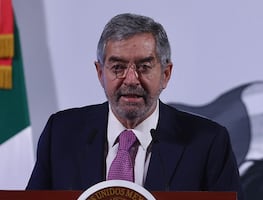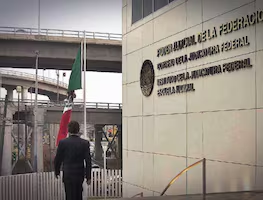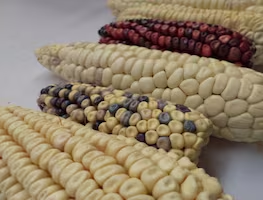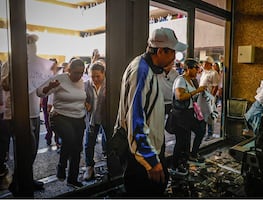Más Información

Avanza repatriación a México de connacionales secuestrados por huitíes; reciben asistencia y protección consular

Canciller De la Fuente dialoga con su homóloga de Canadá, Mélanie Joly; revisan prioridades compartidas del T-MEC 2026

Comité del PJ busca ayuda de la Suprema Corte para decidir si continuar con elección judicial; esperan resolución

INE aprueba catálogo de infracciones para candidaturas de elección judicial; destacan actos anticipados de campaña
Mexican entrepreneur Roberto Guzmán is currently producing resistant bags made from cassava starch, a tuber that comes from the tropical areas in America , in Vietnam . Moreover, the bags dissolve when they are in contact with hot water.
Roberto Guzmán
says that his product “is totally eco-friendly , the bags are similar to the ones given to you at the supermarket or in stores. They are made with materials that come from nature and degrade without leaving any trace, what we want is to contribute to the reduction of human's carbon footprint and protect the environment.”
In contrast, Greenpeace estimates that it takes over 55 years for a regular plastic bag to degrade. Also, according to the UN , they are among the 10 objects commonly found in the so-called garbage patches found in the Pacific, Atlantic, and the Indian oceans . The study released by the UN also explains that around 500 billion plastic bags are used every year.
Learning about bioplastics
Roberto studied International Commerce and then obtained a scholarship to study in Europe, where he studied Economic Relations. Then, he worked in China, where he became interested in protecting the environment:
“I was in Beijing when I realized that people used a lot of disposable products. I traveled to Thailand and the Philippines often, which are developing countries where the environment culture is non-existent and that is where I told myself I wanted to do something,” says the Mexican entrepreneur .
Then he heard about bioplastics . “A friend explained to me that his grandfather had participated in the development of those materials in the 70s but that they abandoned them for economic and commercial interests that (were present” during that time, so I thought it would be good to resume them.”
Despite his interest, he didn't have the technical or scientific knowledge to produce biodegradable bags but luckily, he then met Malou Classens : “She is from the Netherlands and her country is always the most innovative one to protect the environment, when I told her about the project she liked it and she immediately joined.”
Then Malou helped Roberto develop his idea. He knew how to create a business model and she was an activist and environment expert. That's how he founded Wave .
Wave
Roberto moved to Vietnam for work but continued his work with Malou. They realized that their business opportunity was in the creation of ecological products , especially an alternative from plastic bags .
Then, after 18 months of research and tests, they obtained a compound derived from cassava , which has the same physical properties as plastic . The fact that Indonesia is the world's main producer of cassava and that it's located near Vietnam was a coincidence.
“The material (used at) Wave is as resistant as the plastic we all know, you can use it if it rains because it only dissolves with hot water. If any animal, fish, crustacean or person accidentally ingests them, nothing will happen, its organism will eliminate it because it's totally natural.”
It the Wave bag is dumped at a garbage dump, it will degrade in three months. When burnt, the ashes aren't harmful to the respiratory system and be used as compost.
Moreover, the Wave bags were certified as an ecological product by a French laboratory called Bureau Veritas, one of the most important companies in the sector.
Wave is currently producing between 200,000 and 300,000 bags per month and their clients are mainly supermarkets and stores in Vietnam, China, Hong Kong, Indonesia, Singapur, the Falkland Islands, Australia, Euro pe, and in a lower scale, the U.S. , and Mexico.
Roberto is considering opening a factory in Mexico.
gm






